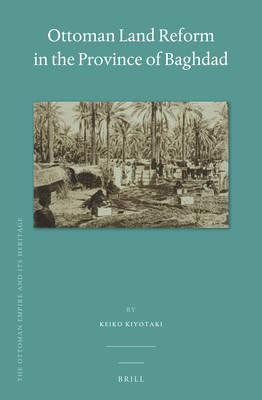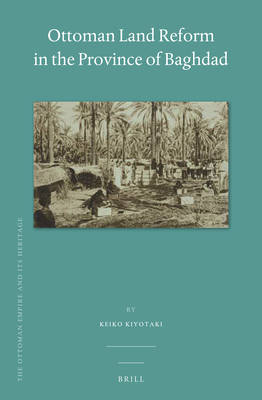
- Afhalen na 1 uur in een winkel met voorraad
- Gratis thuislevering in België vanaf € 30
- Ruim aanbod met 7 miljoen producten
- Afhalen na 1 uur in een winkel met voorraad
- Gratis thuislevering in België vanaf € 30
- Ruim aanbod met 7 miljoen producten
Zoeken
Omschrijving
In Ottoman Land Reform in the Province of Baghdad, Keiko Kiyotaki traces the Ottoman reforms of tax farming and land tenure and establishes that their effects were the key ingredients of agricultural progress. These modernizing reforms are shown to be effective because they were compatible with local customs and tribal traditions, which the Ottoman governors worked to preserve.
Ottoman rule in Iraq has previously been considered oppressive and blamed with failure to develop the country. Since the British mandate government's land and tax policies were little examined, the Ottoman legacy has been left unidentified. This book proves that Ottoman land reforms led to increases in agricultural production and tax revenue, while the hasty reforms enacted by the mandate government ignoring indigenous customs caused new agricultural and land problems.
Ottoman rule in Iraq has previously been considered oppressive and blamed with failure to develop the country. Since the British mandate government's land and tax policies were little examined, the Ottoman legacy has been left unidentified. This book proves that Ottoman land reforms led to increases in agricultural production and tax revenue, while the hasty reforms enacted by the mandate government ignoring indigenous customs caused new agricultural and land problems.
Specificaties
Betrokkenen
- Auteur(s):
- Uitgeverij:
Inhoud
- Aantal bladzijden:
- 336
- Taal:
- Engels
- Reeks:
- Reeksnummer:
- nr. 66
Eigenschappen
- Productcode (EAN):
- 9789004366596
- Verschijningsdatum:
- 16/05/2019
- Uitvoering:
- Hardcover
- Formaat:
- Genaaid
- Afmetingen:
- 160 mm x 236 mm
- Gewicht:
- 635 g

Alleen bij Standaard Boekhandel
+ 464 punten op je klantenkaart van Standaard Boekhandel
Beoordelingen
We publiceren alleen reviews die voldoen aan de voorwaarden voor reviews. Bekijk onze voorwaarden voor reviews.








